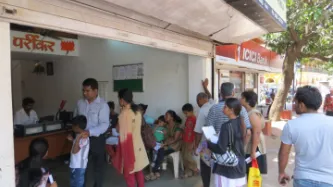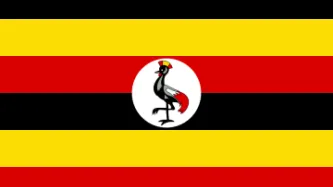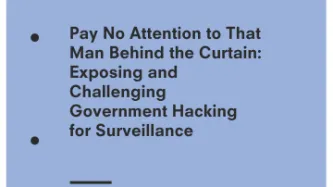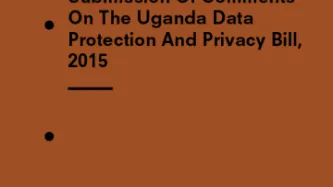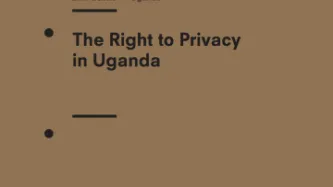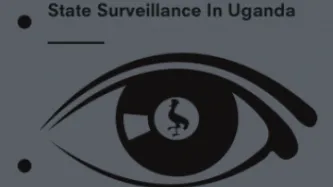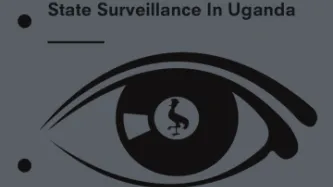Search
Content type: Examples
The Spanish data protection regulator AEPD has fined Glovo €550,000 for excessively surveilling delivery drivers and failing to protect their data from abuse by company personnel in other countries. The data includes details of each delivery, all communications exchanged with the platform, and reputation scores. The Spanish regulator was inspired to investigate after a 2020 warning from its Italian counterpart, which was investigating Glovo's Italian food delivery subsidiary, Foodinho. …
Content type: Long Read
This piece was last updated in June 2021.
In many countries, access to social protection (such as welfare programmes or healthcare) is made conditional on producing a form of identification (“ID”). But obtaining a recognised and accurate ID is often a process riddled with discriminatory designs, bureaucracy and technical failures that prevent individuals from accessing the services they are entitled to. Even when people eventually get an ID, it might not accurately reflect who they are,…
Content type: News & Analysis
Uganda's Presidential election in January 2021 resulted in the incumbent President Museveni winning his sixth term in office, having held power for 35 years. The election took place amidst a global pandemic and the run up to election day was fraught. Violence left dozens dead and hundreds more arrested, including the opposition candidate Bobi Wine. Mass rallies and in person campaign meetings were banned due to Covid restrictions and political parties in Uganda were encouraged to conduct “…
Content type: News & Analysis
Unwanted Witness’ research into Safeboda highlighted the company’s failure to comply with some of the law's core data protection principles, with a number of implications for the exercise of data subject rights. The enforcement action against Safeboda by National Information Technology Authority, Uganda (NITA-U) requires the company to make fundamental changes to how they handle people's personal data in order to comply with the Data Protection and Privacy Act, 2019.
This first landmark…
Content type: Examples
On 2 March 2021, the Ministry of Health of Uganda unveiled its plan to immunize millions against COVID-19 starting on 10 March 2021.
The statement made by the Ministry of Health noted that "All persons eligible for vaccination will be required to provide a National Identification Card in the case of Ugandan citizens or a passport in the case of non-Ugandans".
Source: https://www.youtube.com/watch?v=asc5mQe0-3I
Publication: NTV News
Content type: Examples
The Canary Islands sought to become the first destination for a coronavirus-free flight as part of a digital health passport pilot project backed by the World Health Organisation. Via the Hi+Card secure health mobile app that certifies they do not have COVID-19, each passenger will have a unique digital profile on their phone that will hold health information uploaded by a health entity that has been accredited by the Health Ministry. The move will make the archipelago a worldwide laboratory…
Content type: Examples
After some employers were caught asking for such information, in mid-June 2020 the Spanish data protection authority warned that it is a violation of data protection laws to screen job candidates based on whether they have had and recovered from COVID-19 and developed antibodies. This type of information is personal health data and is covered by article 9 of the GDPR.
https://www.aepd.es/es/prensa-y-comunicacion/notas-de-prensa/comunicado-AEPD-covid-19-oferta-busqueda-empleo
Writer: AEPD…
Content type: Case Study
The Ugandan government has a running contract with the Chinese tech giant, Huawei, to supply and install CCTV cameras along major highways within the capital, Kampala, and other cities.
While details of the contract remain concealed from the public, the Uganda Police Force (UPF) released a statement, simply confirming its existing business partnership for telecommunication and surveillance hardware, and software between the security force and Huawei. However, it is not clear whether the…
Content type: Examples
Our partners from Unwanted Witness in Uganda wrote a formal letter to the Ministry of Information Communications Technology and National Guidance demanding for strict observance of human rights for any intended use of surveillance technologies to fight COVID-19.
In a letter addressed to the Permanent Secretary Ministry of ICT, Hon. Vincent Bagiire and copied to Minister Judith Nabakooba, calls on government to respect its human rights obligation and restrain from exercising excessive…
Content type: Examples
Ten Ugandan police officers were charged with torture after allegedly caning 38 women and forcing them to swim in mud in Elegu, a town in the northern part of the country. Police have also arrested 23 people during a raid on a shelter for homeless lesbian, gay, bisexual and transgender youth, accused them of disobeying orders by remaining in the shelter, and charging them with a negligent act likely to spread infection or disease.
Source: https://www.bbc.co.uk/news/world-africa-52214740…
Content type: Examples
The Uganda Communications Commission announced on March 22 that it would crack down on people spreading fake videos and misinformation about the novel coronavirus through social media, noting that this behaviour is illegal under the Computer Misuse Act, the Data Protection and Privacy Act, and other penal laws. UCC went on to warn in a public notice that it would arrest and prosecute violators.
Sources:
http://www.china.org.cn/world/Off_the_Wire/2020-03/23/content_75847935.htm
https://twitter…
Content type: Examples
Spanish police are using drones to warn people to stay indoors apart from necessary trips after seeing a spike in COVID-19 cases. Human officers control the drones and relay via radio warnings to people to leave public parks and return home.
Source: https://www.businessinsider.com/spanish-police-using-drones-to-ask-people-stay-at-home-2020-3
Writer: Charlie Wood
Publication: BusinessInsider
Content type: Examples
On Wednesday, the government of Madrid will launch a free app to track COVID-19 cases similar to those developed in Asian countries such as South Korea, China, and Taiwan. The development is being carried out at no charge by developers from Google, Telefónica, Ferrovial, Goggo Network, Carto, ForceManager and Mendesaltaren, and is led by known entrepreneur Martín Varsavsky. The priority is to lessen the load on emergency numbers through the combination of users' health status and the places…
Content type: News & Analysis
This piece was originally published by Unwanted Witness here.
Today marks exactly one year since Uganda passed its data protection law, becoming the first East African country to recognize privacy as a fundamental human right, as enshrined in Art 27 of the 1995 Uganda Constitution as well as in regional and International laws.
The Data Protection and Privacy Act, 2019 aims to protect individuals and their personal data by regulating processing of personal information by state and non-state…
Content type: Examples
In February 2019 Gemalto announced it would supply the Uganda Police Force with its Cogent Automated Biometric Identification System and LiveScan technology in order to improve crime-solving. LiveScan enables police to capture biometric data alongside mugshots and biographical data. CABIS speeds up the biometric matching process by mapping distinctive characteristics in fingerprints, palm prints, and facial images. The Ugandan police will also pilot Gemalto's Mobile Biometric Identification…
Content type: Examples
VeriPol, a system developed at the UK's Cardiff University, analyses the wording of victim statements in order to help police identify fake reports. By January 2019, VeriPol was in use by Spanish police, who said it helped them identify 64 false reports in one week and was successful in more than 80% of cases. The basic claim is that AI can find patterns that are common to false statements; among the giveaways experts say that false statements are likely to be shorter than genuine ones, focus…
Content type: News & Analysis
This piece was first published in GDPR today in March 2019.
Elections, referendums and political campaigns around the world are becoming ever more sophisticated data operations. This raises questions about the political use and abuse of personal data. With the European Union elections fast approaching and numerous national and local elections taking place across EU Member States, it is essential that the legal frameworks intended to protect our personal data do just that.
Member State…
Content type: Long Read
This image was found here.
Spain is holding a national general election on April 28 (its third in four years). Four weeks later Spaniards will again go to the polls to vote in the European Parliament elections. At Privacy International we are working to investigate and challenge the exploitation of people’s data in the electoral cycle including in political campaigns. This includes looking at the legal frameworks governing the use of data by political parties and their…
Content type: Examples
In November 2018, the Spanish senate approved 220-21 an online data protection law intended to ensure compliance with the General Data Protection Regulation with an added amendment that allowed political parties to use personal data obtained from web pages and other publicly accessible sources for political purposes during campaign periods. Spain's Platform for the Defence of Freedom of Information criticised the law's potential to allow parties to create ideological profiles and emulate the…
Content type: State of Privacy
Table of contents
Introduction
Right to Privacy
Communication Surveillance
Data Protection
Identification Schemes
Policies and Sectoral Initiatives
Introduction
Acknowledgement
The State of Privacy in Uganda is the result of an ongoing collaboration by Privacy International and Unwanted Witness.
Key privacy facts
1. Constitutional privacy protection: The constitution contains an explicit protection of the right to privacy (Art. 27).
2. Data protection law: There is no…
Content type: Advocacy
Privacy and security are both essential to protecting individuals, including their autonomy and dignity. Undermining privacy undermines the security of individuals, their devices and the broader infrastructure. People need privacy to freely secure themselves, their information, and fully enjoy other rights.
A growing number of governments around the world are embracing hacking to facilitate their surveillance activities. When governments hack for surveillance purposes, they seek to…
Content type: Advocacy
At the core of data protection debates, there is a power play between empowering individuals to control their data and empowering those who use (or want to) use their data. By regulating data processing, it provides avenues for individuals to exercise their rights if there is any unlawful interference in this power play.
It is crucial for any regulatory framework to be centred around the protection of human rights, autonomy and dignity, and therefore essential to ensure that…
Content type: Press release
Below is a joint statement from Privacy International and Bytes for All.
This Friday, 27 September, marks the conclusion of the 24th session of the UN Human Rights Council, a session which has, for the first time, seen issues of internet surveillance in the spotlight. Privacy International and Bytes for All welcome the attention given at the Human Rights Council to this issue. However, we are concerned about developments which took place that threaten privacy rights and freedom of…
Content type: Advocacy
This stakeholder report is a submission by Privacy International (PI), Unwanted Witness Uganda, the Collaboration on International ICT Policy for East and Southern Africa (CIPESA) and the East and Horn of Africa Human Rights Defenders Project (EHAHRDP).
Content type: Report
Privacy International's new report, For God and My President: State Surveillance in Uganda, exposes the secret surveillance operation and the government's attempts to buy further powerful surveillance tools, including a national communications monitoring centre and intrusion malware, in the absence of a rigorous legal framework governing communications surveillance
Content type: Press release
Ugandan President Yoweri Museveni directed intelligence and police officials to use a powerful, invasive malware to spy on domestic political opponents – including parliamentarians, activists and media houses – following the 2011 presidential election, during a period of urban unrest and police violence, according to secret government documents obtained by Privacy International. A feature broadcast piece will air on BBC Newsnight on Thursday, 15 October.
Privacy International's new…
Content type: Long Read
We hate to say we told you so.
Privacy International has for years warned that powerful surveillance technologies are used to facilitate serious human rights abuses with insufficient technological and legal safeguards against abuse.
We now have the most solid evidence to date that we were right. Our latest investigation uncovers disturbing evidence that substantiates our long held concerns.
Today Privacy International publishes an investigation (PDF) into communications surveillance in…
Content type: News & Analysis
One of the first things that strikes you about the chaotic East African metropolises of Kenya, Uganda and Zimbabwe is the blanket of adverts for mobile phone companies that covers them, from the walls of the immigration hall at Harare airport, to the rickety shacks that line the dusty streets of Kampala. Where official signage is unavailable, DIY versions are painted onto the roofs and walls of houses and small businesses. Stores selling mobile phones are rarely more than a few short steps away…
